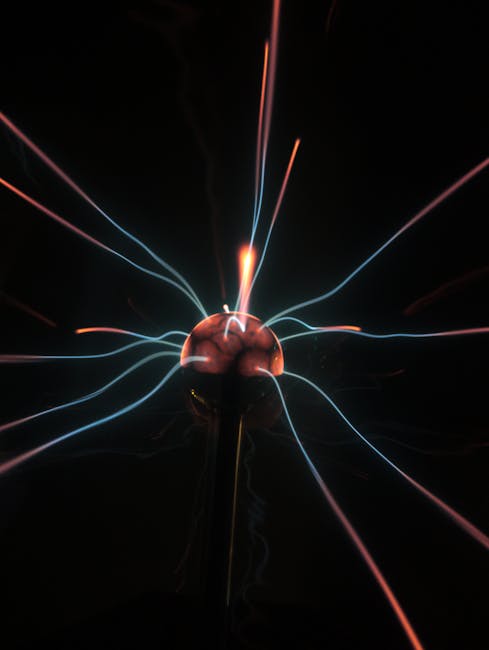Physics is often regarded as one of the most demanding subjects at the O-Level, and for many students, it can feel like navigating a maze of abstract formulas, principles, and diagrams.
Yet, with the right guidance and structured support, Physics can shift from being a source of stress to a subject that sparks curiosity and even enjoyment.
In this article, we’ll take a closer look at everything you need to know about O-Level Physics tuition in Singapore.
We’ll break down why tuition matters, what benefits it can bring, what to expect from lessons, and how parents and students can make the most of this extra academic support.
Whether you’re a student struggling to keep up or a parent searching for the best way to support your child, this guide will help you make an informed decision.
Introduction to O-Level Physics

Source: Unsplash
O-Level Physics is designed as a foundational course, equipping students with the key scientific concepts that underpin much of the physical world.
The syllabus covers a broad range of topics: mechanics, forces, energy, electricity, magnetism, waves, light, and thermal physics, just to name a few.
These aren’t just theoretical ideas; they connect directly to everyday life, from how a fan cools a room to why a rainbow appears after rainfall.
At the same time, the subject demands a balance of conceptual understanding and mathematical application.
Students are expected not only to memorise definitions but also to apply formulas accurately, solve multi-step problems, and analyse data.
This dual demand, conceptual clarity and mathematical rigour, is why many students feel overwhelmed. For instance, they might understand the idea of gravitational force but struggle when it comes to applying the equations in problem-solving.
Yet, Physics can also be incredibly rewarding. For students considering future pathways in engineering, technology, or the sciences, mastering Physics is essential.
And even for those who won’t pursue science-related careers, the subject nurtures critical skills like logical thinking, problem-solving, and precision, skills that carry weight in almost any profession.
With all this in mind, it becomes clear why some students benefit from an extra layer of support through tuition.
Why Consider O-Level Physics Tuition?
In a typical classroom, a teacher has to manage a large group of students, each with different strengths, weaknesses, and learning speeds. While classroom teaching provides structure, it can sometimes leave gaps.
For example, a student who needs more time on the topic of electricity may find that the syllabus has already moved on to waves before they’ve fully grasped the basics.
Physics tuition addresses this issue by slowing down, focusing on the individual student’s needs, and bridging those knowledge gaps.
At a tuition centre like T&T Learning Hub, where the tutors are also the founders, the learning environment is intentionally smaller and more focused. With class sizes averaging around eight students, there is more room for personal attention, guidance, and clarification.
Parents often consider Physics tuition not only for students who are struggling but also for those who wish to excel.
Even students who perform decently in school may find tuition beneficial as it gives them an edge: a deeper understanding, exposure to varied problem sets, and strategies that are specifically geared towards examinations.
Benefits of O-Level Physics Tuition
There are numerous ways in which O-Level Physics tuition can benefit students. While the most obvious goal is improved grades, the impact often extends far beyond examination results.
1. Personalised Learning Experience
Every student has a unique way of learning. Some are visual learners who need diagrams and demonstrations, while others grasp concepts better through discussion and repeated practice.
Tuition allows tutors to adjust their teaching methods accordingly, making learning more effective.
2. Improved Confidence
Confidence plays a huge role in performance. A student who feels lost in school lessons may begin to believe that Physics is “too hard” for them. Tuition changes that narrative.
With steady support, students start to see progress, and each small achievement boosts their belief in their abilities.
3. Enhanced Problem-Solving Skills
Physics is not just about memorising facts; it’s about applying knowledge to unfamiliar scenarios. Through guided practice, students learn to approach problems step by step, break them down logically, and avoid common pitfalls.
This structured way of thinking often helps them in Mathematics and other analytical subjects as well.
4. Better Exam Preparation
Examinations require more than just knowledge; they require strategy. Tutors often provide insider tips, such as how to manage time in a paper, how to decode question phrasing, and which topics tend to carry more weight.
These practical insights can make the difference between a borderline pass and an outstanding grade.
To sum up, tuition creates an environment where learning is reinforced, doubts are addressed, and skills are honed in a way that complements the school system.
Choosing the Right Tutor or Tuition Centre
The effectiveness of tuition depends greatly on who is teaching and how they are teaching. When evaluating options, here are a few things to keep in mind:
1. Qualifications and Experience
Ensure the tutor has the appropriate academic qualifications and teaching experience. A background in physics or education can be particularly beneficial.
2. Teaching Style
Every student learns differently, so find a tutor whose teaching style matches the student's learning preferences. Some tutors may use visual aids, while others might focus on hands-on experiments or problem-solving exercises.
3. Reviews and Recommendations
Seek recommendations from other parents or students, and look for reviews online. A tutor with a solid track record of success is likely to deliver quality instruction.
Ultimately, the “right tutor” is not necessarily the one with the highest academic credentials, but the one who can connect with the student and bring out their potential.
What to Expect from O-Level Physics Tuition
Knowing what happens during tuition can set realistic expectations for parents and students. While details vary across tutors and centres, some common features include:
1. Initial Assessment
Many tutors begin with a short test or diagnostic exercise to identify areas of strength and weakness. This ensures that time is spent efficiently on the topics that matter most.
2. Regular Sessions
Most tuition centres run regular weekly sessions, though some may offer bi-weekly options. The consistency helps reinforce knowledge steadily rather than cramming it all before exams.
3. Homework and Practice
Physics is best learned by doing. Expect plenty of worked examples, practice questions, and homework assignments that reinforce what was taught during lessons.
4. Progress Tracking
Good tutors provide feedback, not only on correct answers but also on the thought process behind them. This helps students understand where they went wrong and how to approach similar problems in the future.
By combining all these elements, tuition provides both the knowledge and strategies that students need to tackle O-Level Physics with confidence.
Conclusion
O-Level Physics tuition is more than just an academic “booster.” It is a structured support system that nurtures understanding, builds confidence, and equips students with skills that last well beyond the exam hall.
Whether your child is struggling to keep pace or aiming to achieve a distinction, the right tuition can provide that extra push towards success.
Centres like T&T Learning Hub, where tutors themselves are directly involved in teaching small groups, offer a balanced environment: structured, yet personal; challenging, yet supportive. And for many students, that combination can be transformative.
If Physics feels like an uphill climb, remember, it doesn’t have to stay that way. With steady guidance and consistent effort, even the steepest learning curve can be turned into a path towards achievement.
FAQs
1. What should I look for in an O-Level Physics tutor?
Look for qualifications, experience, teaching style compatibility, and positive reviews or recommendations.
2. How much does O-Level Physics tuition typically cost?
Costs can vary widely depending on the tutor's experience, location, and duration of sessions. It's best to research and compare rates in your area.
3. Can group tuition be as effective as one-on-one sessions?
Group tuition can be effective, especially if students are at similar levels. However, one-on-one tuition offers more personalised attention.
4. How soon should a student start tuition?
It's beneficial to start tuition early in the academic year to build a strong foundation and address any difficulties as they arise.

